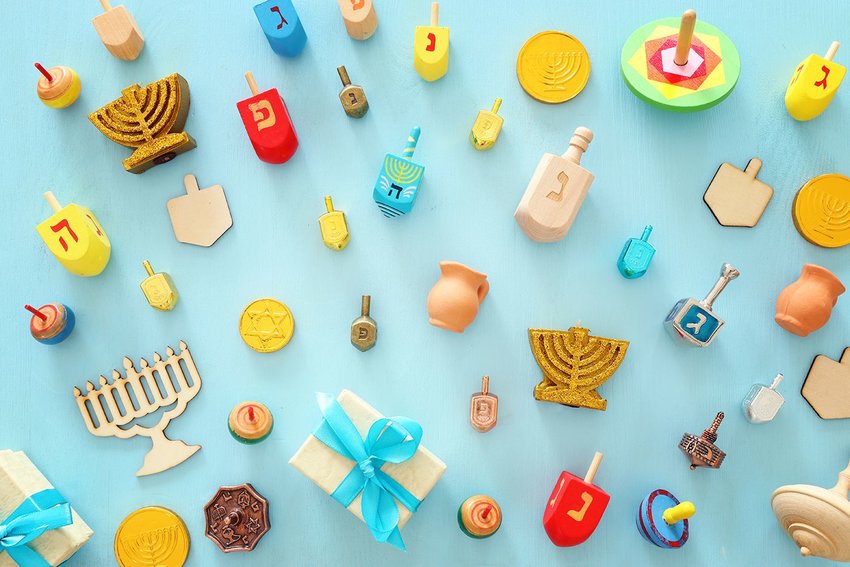Whether you’re celebrating Hanukkah, Kwanzaa, Christmas, Las Posadas, Diwali, Chinese New Year, or Winter Solstice, many cultures have special traditions this time of year. Get into the holiday spirit by learning a few seasonal words from another culture.
Advent
"Advent" originated from the Latin adventus, meaning a coming, approach, or arrival, which then morphed into the Old French auvent. "Advent" didn’t make it to the English language until the mid-18th century, but the Christian religious traditions of Advent are believed to have begun as early as the 10th century.
Carol
"Carol" is a celebratory word with many potential origin stories. The English word "carol" came from the Old French carole, which was a particular song and dance done in a ring. There could be a Greek influence, with a mixture of khorus and aulein, meaning chorus and to play the flute, respectively. It could have originated from Latin, as well. Choraula means a dance to the flute. Wherever it came from, it’s now a festive Christmas hymn.
Diya
“Diya” is a Sanskrit word for an oil lamp used in Hindu, Sikh, Zoroastrian, and Jain religious festivals. The name of the Hindu festival Diwali comes from the Sanskrit word deepavali, which combines “deep” — “diya” — and “avali,” meaning row. Diwali, often called the Festival of Lights, literally translates to rows of diyas.
Gelt
The name for the chocolate gold coins given around the Hanukkah season comes from the German and Yiddish words for gold and money. The practice of giving gelt came from traditions of giving gifts and encouraging children to learn about the Jewish practice, tzedakah, of charitable giving. Today’s chocolate coins are also used to play the dreidel game.
Kinara
Swahili for candlestick, a kinara is used to celebrate Kwanzaa. Maulana Karenga, the creator of Kwanzaa, struggled to find a seven-stick candle holder, so he instead broke off two holes from a menorah and used it for Kwanzaa.
Nián
Going back to 14th century B.C. in the Shang Dynasty of China, nián translates to “ripe grains." The ancient Chinese calendar was centered around the harvest season, which came to a close during the winter solstice. Nián was the name of the mythological dragon who preyed upon a village in the dead of winter, eating villagers due to the scarcity of food. The villagers shot off fireworks and decorated in red (a color said to scare Nián) to frighten the dragon. It was then captured and ridden by the Taoist monk Hongjun Laozu. Modern Chinese New Year celebrations still incorporate many elements of red and dragons.
Noël
The word for the Christmas Feast of Nativity comes from the 14th century Middle-French words nowel or nouel. The word was meant to be shouted to celebrate the birth of Christ, and then became a French interjection for expressing general joy, as first printed in Geoffrey Chaucer’s poem, “The Franklin Tale.” Nowel came from the Latin adjective natalis, meaning of or belonging to one’s birth.
Ponche
This is the traditional cider brewed around the holiday season, but especially during the Mexican festival of Las Posadas. Ponche came from the Sanskrit word pãc, which means five. Count the number of ingredients in the original recipe: palm wine, sugar, lemon, tea, and water. The English adopted the word and turned it into punch, which was transformed into ponche by the Spanish and then brought to the Americas.
Shamash
This word is Aramaic for servant or attendant. The shamash is the candle on a menorah used to light the holy candles. It is usually positioned above or below the other candles to indicate that it is separate from the holiness of the other candles. There is a debate about when the practice of using a shamash first began. Some say it predates the Talmud, while others say it was used around the 14th century.
Yule
This word for the 12 days of Christmas, starting December 25, has ancient roots. The term is linked to the Old Norse jól, meaning a feast of entreaty, which came from the Old Norse term hjól, meaning the wheel of life. When the Christians took over the European Pagan holidays, they narrowed it to mean a 12-day feast of the Nativity. Eventually, Christians replaced "Yule" entirely with "Christmas" in the 11th century, but you’ll still see the word used generically around the Christmas season.
Feature photo credit: tomertu/ Shutterstock

